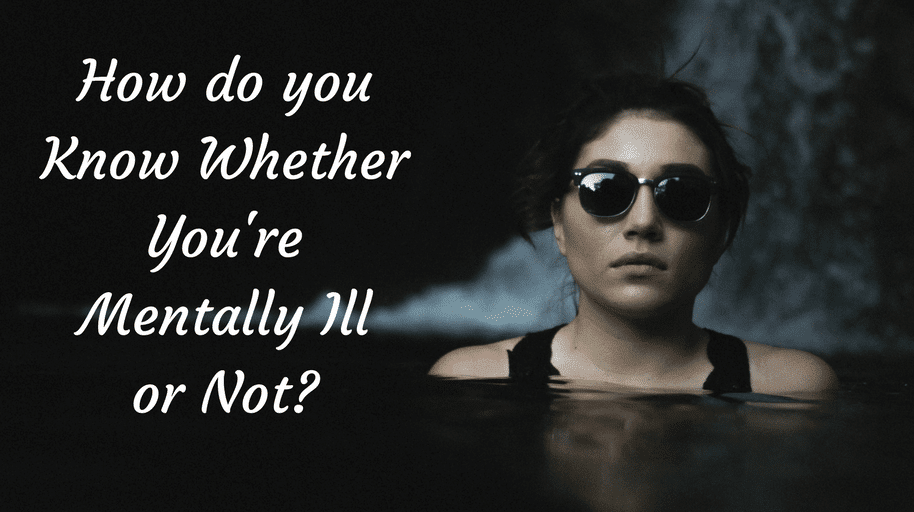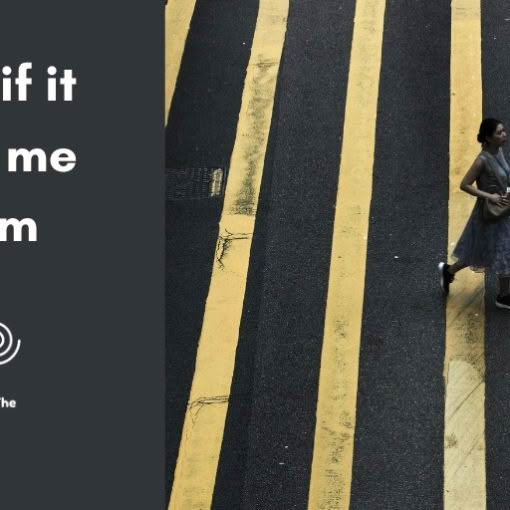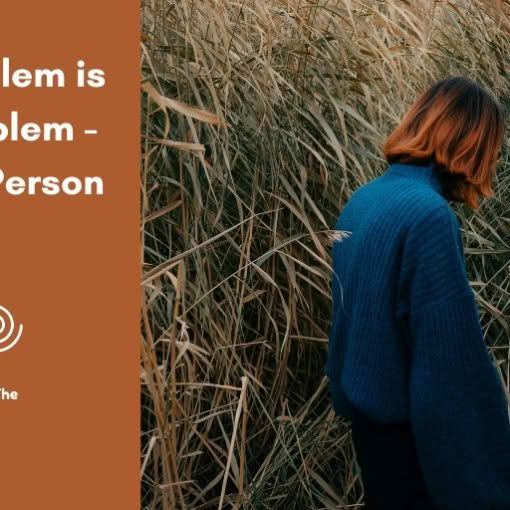You don’t know what you don’t know, and if you’re mentally unwell, this unawareness can be huge.
Well, that is kind of obvious, but actually, there are times when you look back over your life and wish that you knew then what you know now. Now I’m not talking about simply making some wrong decisions and regretting them later. It’s more about uninformed ignorance.
I remember when I first started taking some anti-depressants. It wasn’t a miraculous cure but over the weeks that followed it was like a misty cloud being lifted off my thinking and thought processes. It was like the world just appeared more colourful. I wished I had been advised to go to my G.P. earlier.
You see what had happened was that I had become accustomed to how I viewed the world. I had no awareness that I had a big black dog of depression as my constant companion.
Vincent M. Wales puts it well
When I did finally consent to go on anti-depressants, in my forties, it made a big difference, and I can only imagine what my life would have been like for those 20 years that I should have been taking them but wasn’t. Vincent M. Wales What Is Persistent Depressive Disorder Like?
Recently I had a reader ask a question
How do you know when you’re mentally ill or not?
This is a very interesting and important question and not easily answered.
A few years ago I wrote some content for training. The writing is a bit more technical than usual.
What is a mental illness?
At best, a mental illness implies that a person is showing clinically significant behavioural and psychological dysfunction that is persistently different from cultural norms in either extreme of frequency and intensity and there is evidence of impairment in one or more of the following areas of human functioning:
- Intellectual and cognitive functioning – thinking process;
- Emotional expression and control – ability to control and express feelings;
- Interpersonal relationships- ability to relate well with others.
Cultural Norms
The cultural norm recognises that every culture establishes approved standards and expectations for the behaviour of its members. We have a normal way of acting and behaving in our society. E.g. it’s a cultural norm to wear clothes!
Behaviour may be thought of as deviant, or different in the sense that it deviates statistically from the normal, the usual, the most common or typical reaction found in the majority of the population. We all wear clothes, those that don’t could be thought of as different.
Frequency and Intensity
If a behaviour is of concern, it is important to assess the frequency (how often it occurs). Is the behaviour persisting, or is it not?
The intensity of the behaviour is also important. Take the following example. Is the behaviour of pulling hair from one’s head abnormal? While many might respond affirmatively, others might ask for additional information before answering. If pulling hair occurred only once, or at the most twice, the answer might change to a firm ‘no’. If, however, pulling hair was a frequent event, we might become concerned. If pulling hair merely involved the removal of a single strand of hair rather than large clumps, the behaviour would be within normal limits.
Intellectual and Cultural Functioning
The larger the difference between a person’s capabilities and actual performance, the greater is the likelihood of a disorder. If someone has got great abilities such as communicating with others but begins to withdraw and hide away, this could indicate a disorder.
Emotional Expression
Deviation in emotional and control are varied and numerous. Emotional behaviour can be
- Inappropriate emotional expression e.g.. Laughing or cracking jokes at a sad funeral.
- Insufficient emotional expression e.g. a loved one dies and the person does not express any grief or sadness.
- Exaggerated emotional expression e.g. feeling really sad about stubbing your toe
[Tweet “Often it is hard to tell how much emotional pain you and others are in and whether help is needed”]
Having worked in Mental Health for many years, you get kind of sensitive to behaviours that seem ‘Out of the ordinary’.
I remember sitting in a youth church service, and the pastor was interviewing a young man about a devotional practice he was doing. He was writing out portions of the Bible by hand. The story continued that he had written the whole Bible out by hand not just once but actually twice.
Was he unwell? I don’t know, but the extremity of his behaviour and difference to cultural norms raised some concerns for me and a few others.
You may not know if you’re unwell
Mental Illness can change your perceptions of reality. Talk to someone in full blown psychosis, and they will be convinced that someone is out to get them, or that aliens are coming or various other delusions.
If you have a mental illness one of the best things you can do is to have close honest & safe relationships. People who deeply care about you and are willing to speak the truth kindly and gently in love. People who know you and know what a healthy you is like.
‘John, I have noticed that you are hiding away and being more quiet than normal.
Can you tell me what is happening? Perhaps you and I can go and see your doctor together?’
You need to know your Early Warning Signs.
It also requires a degree of humility and being willing to explore others concerns about you.
In summary Mental unwellness is difficult to self-diagnose. Therefore you need a caring community around you who can both observe your life, note changes in mental wellness and are willing to get you help.
Further Resources
-
- How to tell if you or your family member needs help
- Nine signs of mental health issues
- How to cope with mental illness.
- Warning Signs of Mental Illness
Leave a comment below
Barry Pearman
Image: Ariel Lustre
Help Grow Turning the Page





